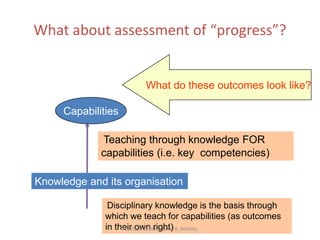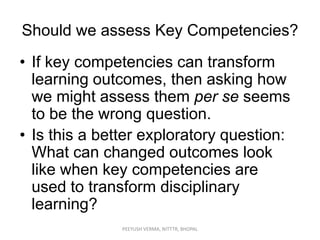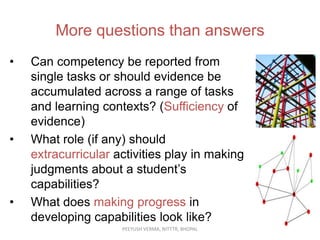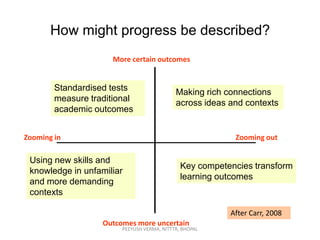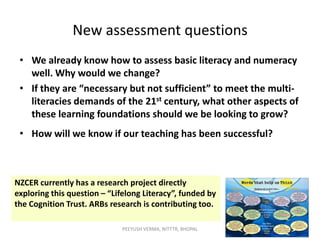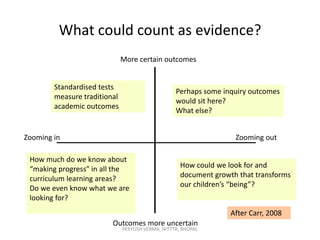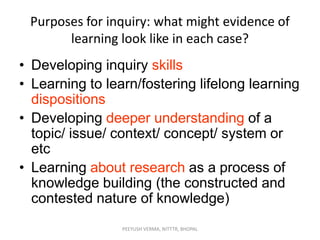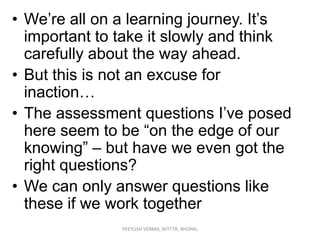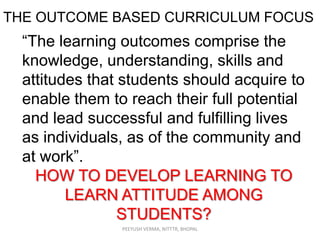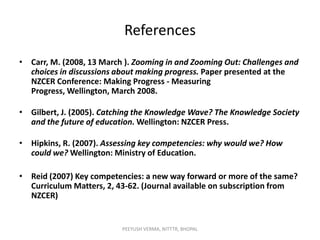The document outlines an outcome-based curriculum development model that emphasizes defining clear intended learning outcomes, aligning curriculum and assessment to those outcomes, and using data to enhance student learning. It highlights the importance of developing key competencies and skills necessary for students to succeed in their future roles, alongside the need for continuous improvement in educational practices. The author discusses challenges in adapting teaching and assessment methods to foster deeper understanding and the transformation of traditional learning outcomes.
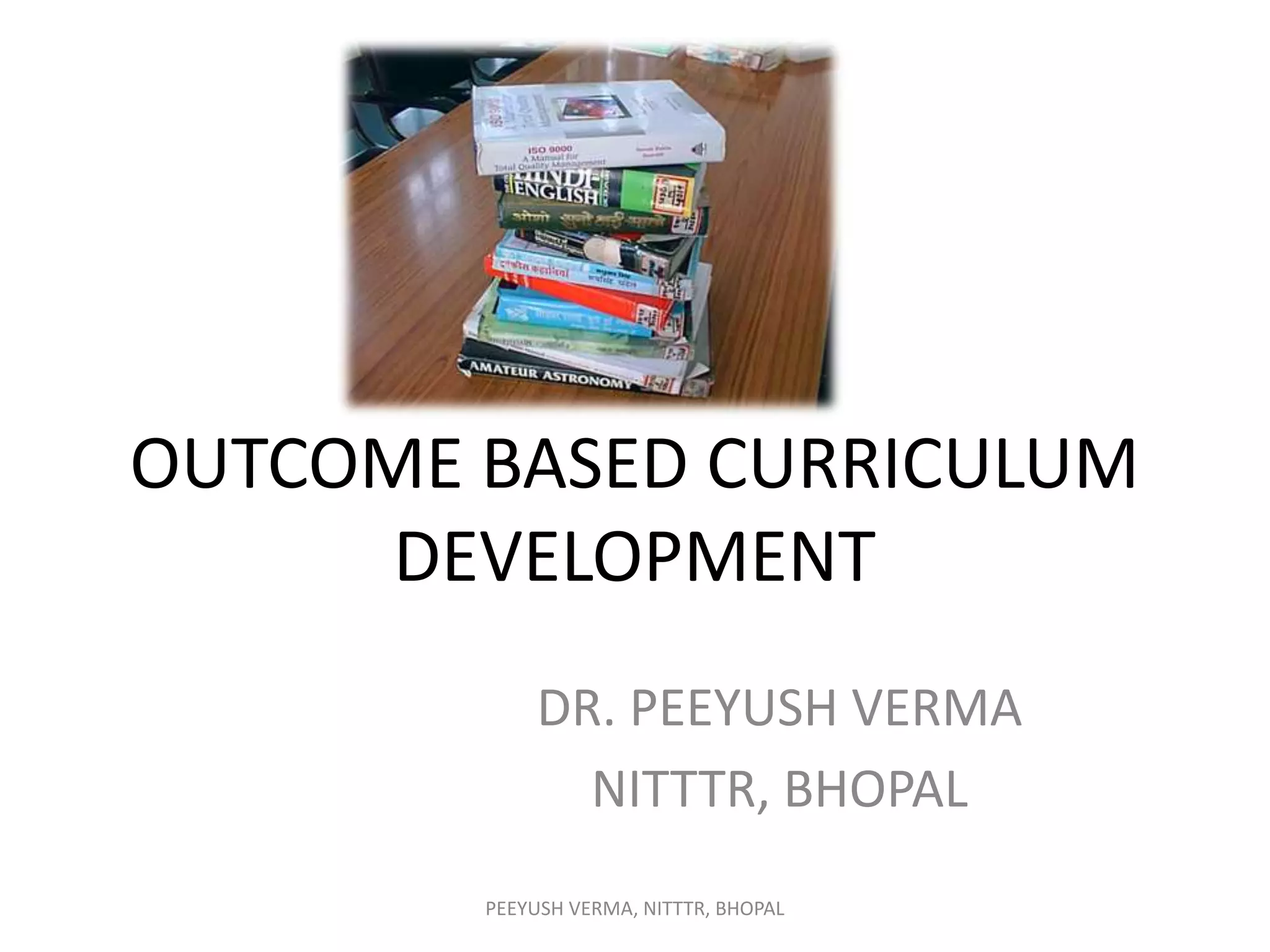
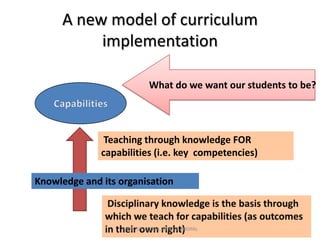
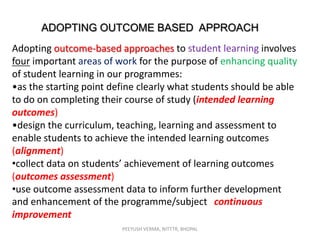
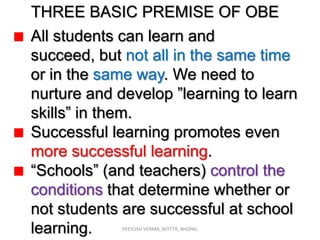
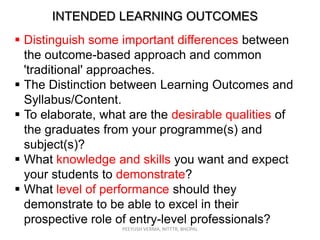
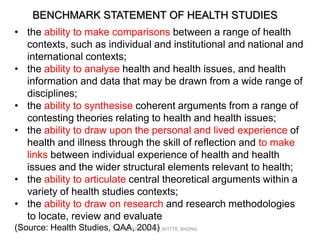
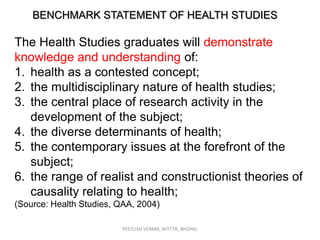
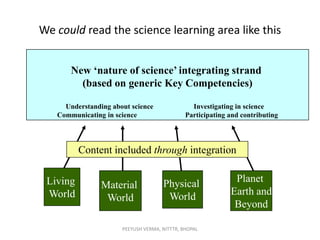
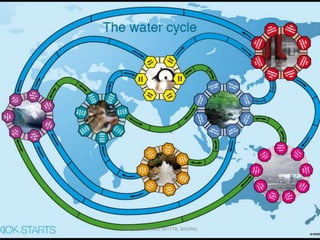
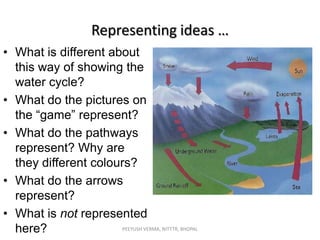
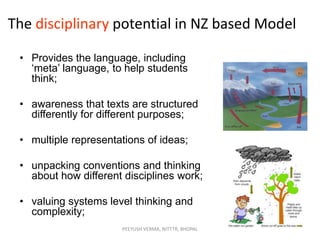
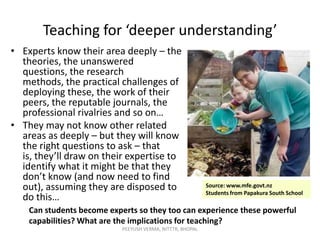
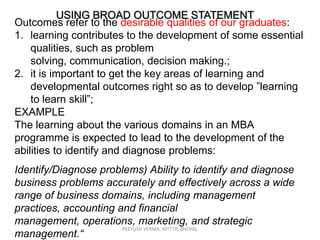
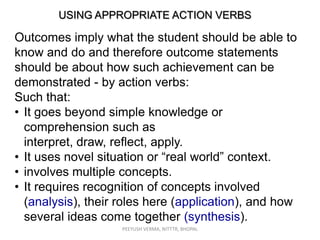
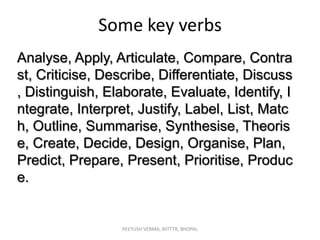
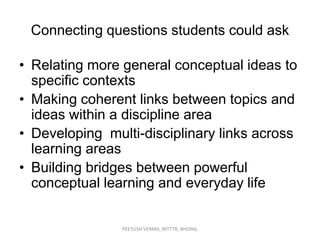
![Challenges for alignment in any education system!
Knowledge era: new views of
knowledge, ICTs, globalization, diversity, rapid
change, etc.
Curriculum review (lifelong
learning, key
competencies, content
reduction)
New types of assessment
(e.g. assessment for
learning)
By implication...
Deep changes in teaching and learning - both in practice and
in [tacit] beliefs about their nature
PEEYUSH VERMA, NITTTR, BHOPAL](https://image.slidesharecdn.com/outcomebasedcurriculum-140203005921-phpapp02/85/OUTCOME-BASED-LEARNING-17-320.jpg)
